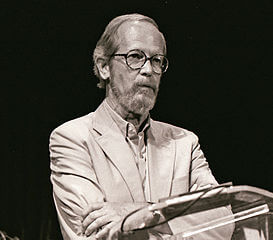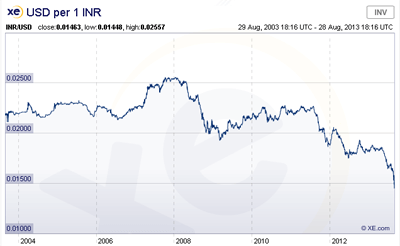Update: Welcome scadasec Digest readers. Much work needs to be done with cybersecurity technology and work processes before Anand’s vision might be realized.
Emerson’s Anand Iyer explores offshoring control rooms in today’s guest post.
I wonder what Elmore Leonard would have said to this. Every generation faces an extinction of a profession and many struggle to get on with the next. On my way to work, on the radio “…Web translations are virtually replacing a whole generation of Translators…”Elmore Leonard – Source: MDCarchives, Elmore Leonard, Miami Book Fair International, 1989, https://jimc.me/13ZWavV
The irony being that human populace is increasing and in every task, every effort is made to reduce human interference. What would happen to our concept of work and virtue when a machine performs every act and humans get an allowance per month to spend on anything they want to, work out, travel, enjoy… Paradise regained?
With the Indian Rupee now rubbished at 1.5 cents, there is more room to think of offshoring of control room operations. That is one part of the story and the other being that onions, an important measure of inflation in India (Indians consume a lot of onions) costs more in India today than in the USA. While some may wonder if the inefficiencies would actually make Indians expensive, all experience and pointers show otherwise.
Let us examine some of corporate manufacturing operations from the past to this date. Initially, we had factories producing a certain material at a certain location, generally close to the raw material source. Bombay could be a textile hub, Texas a petrochemical giant and so on. Corporations in the past had a factory and a corporate office, many a times inside or near the factory premises. In some very old plants, the control room would be at say elevation 8M, very near the main distillation column or reactor.As corporate culture grew, the head offices moved accounting and other administrative tasks away from these factory locations. Control rooms moved a few meters away from the plant (or manufacturing facility). In fact, a factory could have many plants and as many control rooms.
Factories could now move to more remote location and raw materials moved from source to these locations. Corporations had many factories or manufacturing units and a centrally located head office. Some of the control rooms have consolidated and now, we may have many plants within that complex being controlled from a central control room. Plant control rooms so far have remained within the factory or manufacturing location premises.
There seems an incredible opportunity in mixing offshoring (already successful in Banking, Financial services and Insurance [BFSI], engineering and many other sectors) and remote technologies that are shifting the control room far away from the plant and creating an offshored control room.
Imagine a petrochemical giant putting up a control room complex in Thane-Belapur to control 20-30 PTA [purified terephthalic acid] plants geographically spread across the world. Expertise that has been limited to one location would now flow in to the other. Inter-plant barriers would break down; information sharing would raise the standard of operation at every plant. Could this giant then contract to remotely control PTA plants of competitors and allies around the world? Seems like a win-win situation for all.
- As the rupee gets decimated and going down against the cent in the future (already less than a Pence), the human cost-benefit need not be elaborated much.
- Knowledge sharing across many plants spread across the globe would improve the operations drastically.
- Technology for doing so is there. For example, if I look at the DeltaV system, it seems already available. Yes, we would have to split the architecture somewhere either at the level 1 or 2 and have parts of the architecture in the plant. Field electronic marshalling for DCS and SIS, controllers, servers in the remote instrument enclosures (RIEs), minimal control from field for emergencies and maybe stretch the control network to go remote… We can always find ways to improve things… (chuckle)…
- Control room operations could be sub-contracted and remove the risk from the operating company’s books.
- Operation costs and benefits can be a controlled and predictable figure.
- Blah blah blah … benefits….
While some would like to flow against the tide and say, a biotechnology giant, could concentrate all their control rooms in California for facilities spread across the seven continents.
A few field operators would remain at the locations of these manufacturing sites.
Start thinking on what can be done:
- Control room offshoring: Base concept
- Virtual Plant Operator Training Systems (VP-OTS): operators are removed away from the plant so a virtual plant system…
- Operator Mentoring Systems: Key for improving offshored operations…
- New KPIs…
- New challenges… competition from BFSI giants
All the necessary ingredients to make an interesting Goldratt book on Instrumentation and control or maybe Elmore Leonard could have turned out a thriller out of this. Sadly, Elmore is no more and humanity loses an irreplaceable author. I have just put it on a “To Do List of projects” that may or may not see the light of day in the near future…







